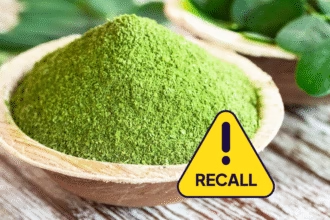
Maca root, which comes from the maca plant native to Peru, has gained popularity as a supplement. Like many plant-based food sources, maca root is rich in beneficial nutrients, including amino acids, iron, calcium, copper, zinc, and potassium. Some research has suggested that consuming maca root or taking maca supplements may have certain health benefits.
It’s possible that maca root may improve fertility in adult men.
One study suggests that taking maca root could improve sperm concentration, the number of sperm in each milliliter of semen. Another review of studies suggests that maca root may improve overall sperm quality, including sperm mobility, or sperm’s ability to move to an egg.
However, the evidence is based on small studies, so more research is needed to determine how maca may impact fertility.
One of the more popular uses of maca root is to improve libido, or sex drive. A review of studies determined that high doses of maca root powder may improve sexual desire in people who take antidepressants, which may interfere with libido.
Further studies are needed to understand the full effect of maca root on libido.
Maca may also help improve sexual function in people who have erectile dysfunction or difficulty achieving orgasm, some research suggests. Overall, experts share that while early clinical results are positive, more evidence is needed to conclude that maca benefits sexual function.
Menopause, the time when a person’s menstrual cycle has stopped for a full year, can cause several uncomfortable symptoms, often due to dropping estrogen levels in the body.
There is some evidence showing that maca extracts can mimic estrogen activity and may influence female hormone levels. Some research has examined this property of maca for its use in treating menopause symptoms.
According to a review, maca root may help reduce the frequency and severity of menopause symptoms such as:
- Depression
- Anxiety
- Sexual dysfunction
- Hot flashes and night sweats
- Sleep difficulties
- Poor concentration
- Fatigue
- Headache
Another review of studies, however, notes there’s not enough evidence to understand whether maca root is an effective way to reduce menopause symptoms.
In traditional Peruvian culture, maca root is dried, boiled, and consumed as a drink. You can also find maca in powder form, which you can add to food or beverages. Some maca supplements are available in gelcap form, with the powder inside, or as an extract.
There’s currently no established dosage for maca root. Research suggests it’s generally safe to take maca in doses of 3 grams or less daily for up to four months. Taking larger doses of maca or taking it for a longer time period may be safe, but more research is needed.
Talk with a doctor before taking maca root, especially if you’re interested in using it for specific benefits. Your doctor can help determine the right dosage for your needs.
Maca root is generally safe for most people when consumed in food or taken as recommended in supplement form. People with certain medical conditions should use caution before taking maca root.
Maca extracts have been shown to mimic estrogen in the body, which means the supplement may not be safe for people with hormone-sensitive conditions such as breast cancer.
People with thyroid conditions should speak to a doctor before taking maca root. Maca contains goitrogens, which are substances that could interfere with the production of thyroid hormones.
If you’d like to try maca root, start with small amounts and see how your body responds. You can add the powder to smoothies, oatmeal, or drinks, or choose a trusted supplement brand. Talk with your healthcare provider before adding maca to your wellness routine—especially if you have a hormone-sensitive condition or take medications.














